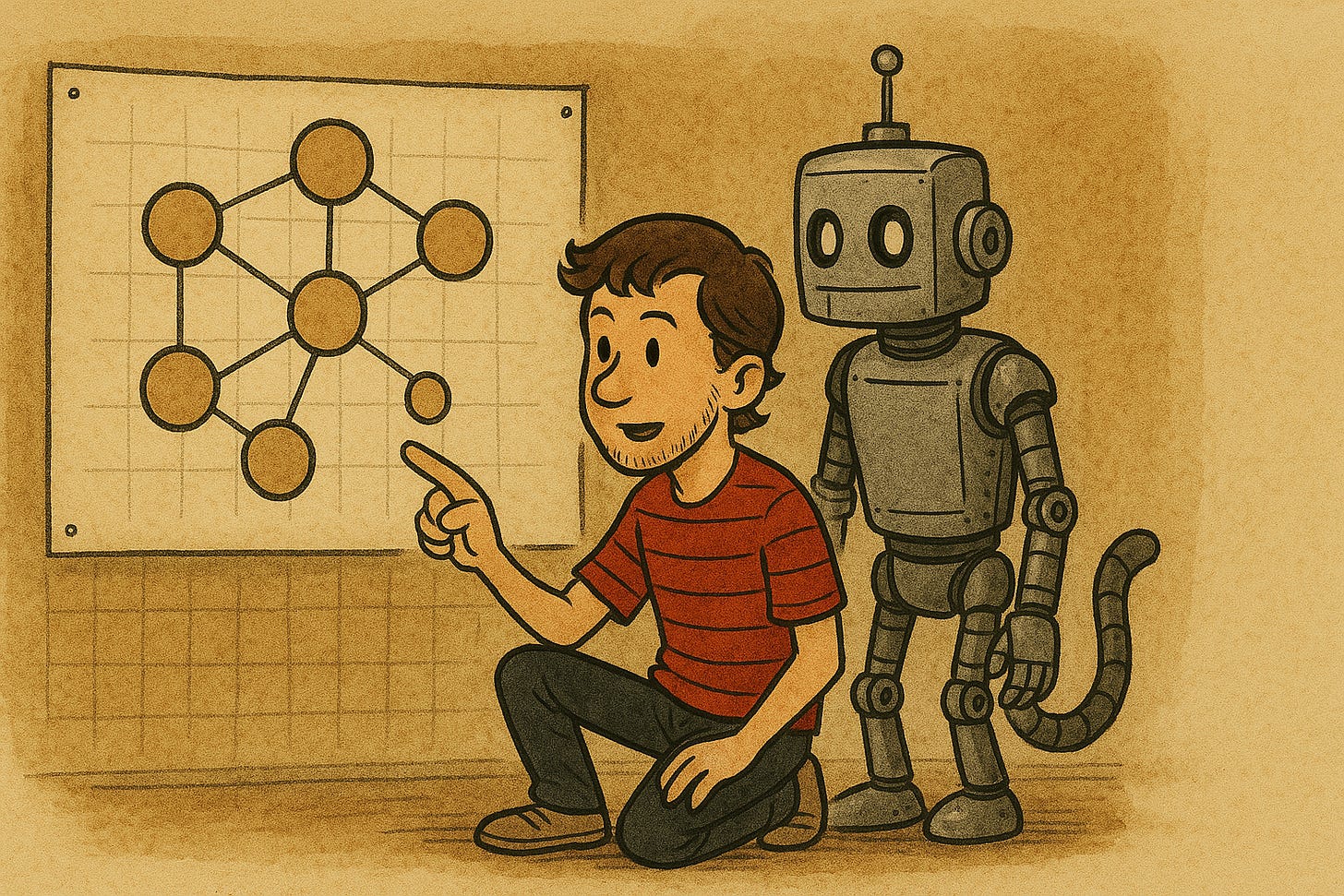I used AI to figure out how I work best. You can too.
Why do some tasks feel effortless, while others drain you before lunch?
That’s not just preference. It’s a pattern. And the sooner you figure out how you actually like to work, the better your choices get.
I wanted to see what my own patterns looked like, so I used AI to help me find them.
Here’s what I did and what it showed me.
Step 1: Ask better questions
There’s a book called Job Moves by Ethan Bernstein, Michael B. Horn, and Bob Moesta. It’s full of questions designed to help you get clear on how you work. Not what looks good on a resume. What actually feels good to do.
I picked a few and answered them honestly. Then I asked ChatGPT to answer the same questions about me, based on what it’s picked up from our past conversations.
Not "pretend to be me." Just this:
"You’ve seen how I think. How would you answer these questions about me?"
Here’s what I asked:
What kinds of tasks give me energy
What kinds of tasks drain me
When have I felt the most fulfilled doing something
What exactly about micromanagement bothers me
Why do I prefer autonomy
What problems do I like solving, and how do I approach them
How do I respond to unclear expectations
When am I most productive, and why
When do I feel most engaged
Step 2: Let AI reflect it back
I dropped in my answers. Then I added ChatGPT’s version. Finally, I asked:
"What patterns do you notice?"
It came back with something surprisingly structured. It didn’t just spit out vague traits or personality types. It mapped out how I work best, what shuts me down, and what actually matters.
Here’s what it gave me.
Energy Drivers (What I Need Most)
I thrive when I have autonomy to choose how I work. This looks like being given outcomes and trust to find the best path. This should not look like someone assigning detailed steps or watching over my shoulder.
I need to work on problems that are interesting and meaningful to me. This looks like projects that challenge my thinking and have real impact. This should not look like repetitive tasks or vague assignments with no clear value.
I do my best work when I have deep, focused time to build, research, or think. This looks like large blocks of uninterrupted time and protection from Slack chaos. This should not look like constant meetings, pings, or shifting priorities.
I feel most engaged when there is clarity about what matters and why. This looks like strong leadership, clear roadmaps, and well communicated goals. This should not look like vague direction, unclear priorities, or daily pivots.
I’m energized by building things that help people or generate real value. This looks like working on tools, experiments, or insights that solve real problems. This should not look like busywork or optics focused tasks that don’t matter.
I enjoy working with a small team of smart, curious people. This looks like 2–4 thoughtful collaborators who challenge and support each other. This should not look like large, political teams or low-trust group work.
I need to be trusted and not micromanaged. This looks like being given ownership, not oversight. This should not look like needing to justify every decision or follow rigid processes.
I’m motivated when I’m learning something new, like systems, tools, or methods. This looks like solving new problems or exploring new tech with real purpose. This should not look like being forced to learn tools that don’t interest me or aren’t useful.
I appreciate being recognized for good judgment and smart work. This looks like people acknowledging when my thinking led to a smart outcome. This should not look like shallow praise or my contributions being overlooked.
I work best when I can follow a personal rhythm, like slow mornings and a thoughtful pace. This looks like flexible hours, async work, and trust in how I manage my day. This should not look like performative hustle culture or rigid 9-to-5 expectations.
What matters most
Must-haves
If these are missing, I shut down.
Autonomy to choose how I work
Problems that are interesting and meaningful
Deep, focused time
Clarity about priorities and goals
Being trusted, not managed
Nice-to-haves
These make the experience better, but I can flex if the core stuff’s there.
Building things that help people
Small teams with smart collaborators
Freedom to work at my own rhythm
Recognition for thoughtful work
Lower priority
Still nice, but not dealbreakers.
Learning new tools or methods, as long as they’re useful
Why this works
I didn’t just get a list of tasks I like. I got clarity on why they matter and what happens when they’re missing. It’s not about avoiding bad jobs. It’s about understanding what helps me do my best work in the first place.
That kind of insight changes everything. Most people never pause to get it. They just react.
This gave me language to make better decisions. That’s the real win.
Try it for yourself
Copy the questions above
Answer them honestly
Ask ChatGPT to answer them too, based on your previous chats
Then ask, "What patterns do you notice"
You don’t need a special prompt. Just a little curiosity.
Worst case, you reflect for 20 minutes
Best case, you rethink your whole approach to work



